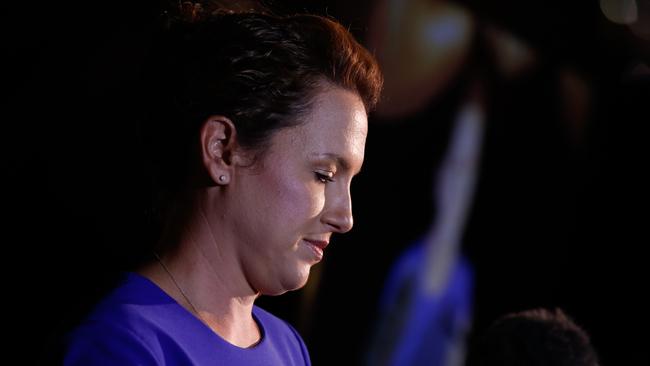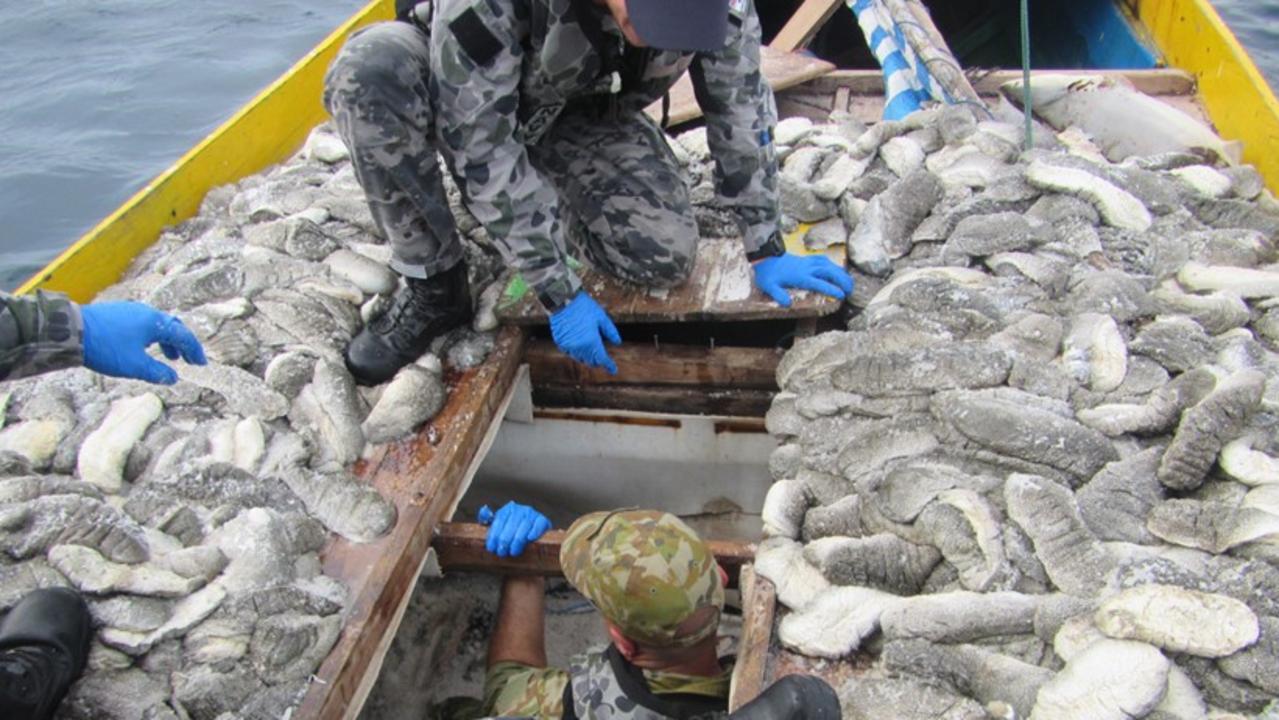CLP leader Lia Finocchiaro proud of her party’s effort as defeat looms
CLP leader Lia Finocchiaro was stoic in the face of her party’s looming defeat as she addressed party faithful in Cullen Bay last night

Politics
Don't miss out on the headlines from Politics. Followed categories will be added to My News.
CLP leader Lia Finocchiaro was stoic in the face of her party’s looming defeat as she addressed party faithful in Cullen Bay last night.
While she did not formally concede defeat, it was likely Labor would claim victory last night and the mood in the CLP camp grew sombre as the vote counts poured in.
At the end of the vote counting last night the CLP had secured four seats by retaining Spillett and gaining Nelson, Braitling and Blain.
The CLP is also still in the fight for several seats that are too close to call: Barkly, Daly, Katherine and Namatijira.
CLP president Ron Kelly was optimistic the CLP could end up winning seven or eight seats when the remaining vote count was complete.
“That’s certainly enough to keep Labor on their toes and accountable,” he said.
Ms Finocchiaro said last night’s results signalled a resurgence for the CLP after being almost wiped out in 2016.
“Just a few weeks ago, at a campaign launch, I talked about the early days of the Country Liberal Party and I said that I wanted to lead a new generation of the CLP to harness that ‘can do’ Territory spirit,” she said.
“We can do that once again, just like Paul Everingham and his team in 1978, I want to start a new generation. We’ve done that tonight, here in 2020.
“You know, there is still a lot of votes to count but if there is one thing I know is that the CLP is back.”
Ms Finocchiaro didn’t hang around long after giving her 10pm speech and left shortly after, hugging supporters.
Despite losing in Fannie Bay to Chief Minister Michael Gunner, a smiling Tracey Hayes seemed undeterred by last night’s results and signalled a possible return to politics in the future.
She described the Territory Alliance project as a “wrecking ball” on the conservative vote.
Mr Kelly also said he was concerned that some of the distributions of preferences early on in the counts were not correct and that results could shift later on.



